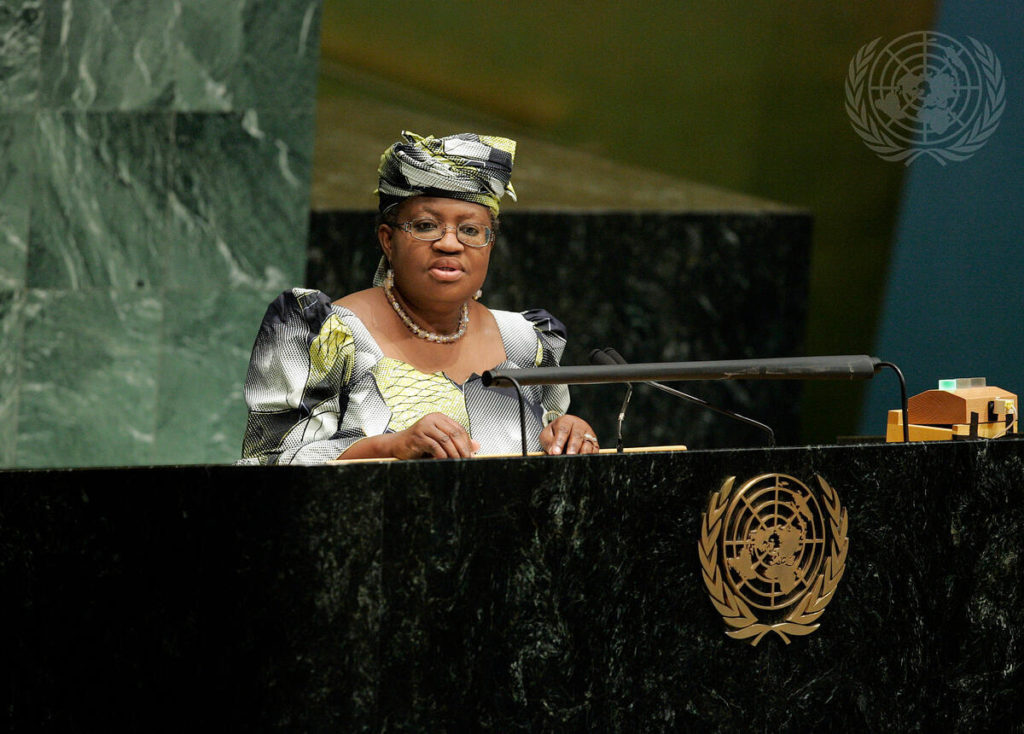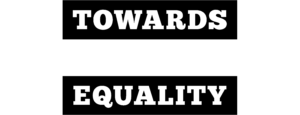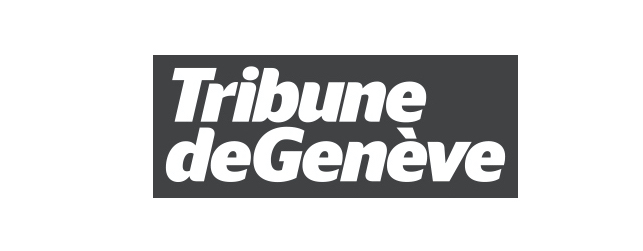Women making their way to the top in international institutions

On March 1, Nigerian doctor Ngozi Okonjo-Iweala became the first woman – and the first African – to take charge of the 625-strong World Trade Organization (WTO). – Credit: UN Photo/Devra Berkowitz
By Laurence Bézaguet, Tribune de Genève (Switzerland)
Men in suits and ties still seem to be the masters of this world. As of the 1st January 2021, nearly 6% of elected heads of state (9 out of 152) and 6.7% of government leaders (13 out of 193) were women. Could this balance of power change? In any event, the United Nations Office seems to be making solid strides towards equality. Particularly in Geneva; where it took until the 6th March 1960 for women to win the rights to vote and stand for election. Now, since May 2019, the Russian economist, journalist and diplomat Tatiana Valovaya occupies the position of Director-General of UN Geneva. An historic first in the UN world.
It’s not the only large-scale institution presided over by a woman. On the 1st of March, the Nigerian Ngozi Okonjo-Iweala became the first woman – and the first African – to take the reins of the World Trade Organization (WTO), and its 625-strong staff. Her appointment came five months after that of the Jamaican Pamela Coke-Hamilton to the head of the International Trade Centre. With a 120-strong staff, the ITC’s mission is to help SME in developing countries to expand their export activities.
This sweeping egalitarian conquest seems far from over. The United Nations Conference on Trade and Development (UNCTAD) could also soon have a female at its helm. It already does, in fact, on an interim basis. “This goal hasn’t been fully achieved yet, but it’s likely that the general-secretary – Portuguese national Antonio Guterres – may have close to his heart the idea of a female appointment to UNCTAD. Since he came to power four years ago, he has really pushed the cause forward. I wouldn’t be surprised if it’s a woman who succeeds him, in fact,” said Isabelle Durant, the former deputy prime minister of Belgium who, since the 15th of February, has been acting secretary-general of this UN agency, with its 480 workers.
A (male) director seeking gender parity
For Antonio Guterres, gender parity at the United Nations needs to be achieved urgently: “It’s one of my personal priorities. It is a moral duty and an operational necessity. The meaningful inclusion of women in decision-making increases effectiveness and productivity, brings new perspectives and solutions to the table, unlocks greater resources and strengthens efforts across all the three pillars of our work.” These are evidently more than just words, since 53% of Guterres’s under-secretary-generals are female, and he appoints female candidates to important positions as often as he can. But is this just for show, to hide the bigger picture? How well are women represented in the organisation’s lower tiers? In 2017, men made up 55.9% of United Nations’ staff, while 44.1% were women; in 2003 this figure was only 36.3%. It’s clear that progress is being made towards parity, even if men are still largely dominant in senior official roles (66.3%).
If we consider an economic sector that’s more typically associated with men; at UNCTAD, women make up 31% of staff at the senior management level (and 34% of all staff). “There’s still scope for improvement, and I’m working hard to push things forward with each recruitment,” Isabelle Durant said. Contrary to what we too often hear, she feels there is no shortage of female talent in the economic sector. It’s unconscious bias that underpins the emergence of more men than women in the recruitment process. “Leadership is not just about male strength, it also means knowing how to bring your teams together, showing empathy and respect.”
A strong female presence at the WTO
Another example of this current trend towards feminisation: the director-general of the WTO has just nominated (on the 4th of May) two women to her team of four deputies – the American Angela Ellard and the Costa Rican Anabel González. Again, it’s a first for the institution: “This underscores my commitment to strengthening our Organization with talented leaders whilst at the same time achieving gender balance in senior positions,” she declared. Among other female heads of international organisations, we could also mention the executive director of UNAIDS, who was appointed in 2020: the Ugandan aeronautical engineer and politician, Winnie Byanyima.
The rise of these women has no doubt helped to revitalize the image of International Geneva – and its major global “multilateral” negotiations –, the role of which was called into question by the United States. For years the UN system has been committed to the promotion of male-female equality. Since 2015 the UN has stepped up the pace, through the adoption of the 17 Sustainable Development Goals; the fifth of which advocates gender equality.
“Women must be involved in the post-Covid response”
All these nominations are “much more than just a signal”, according to UNCTAD’s acting secretary-general: “A woman doesn’t negotiate in the same way, she’s more careful to ensure that it’s done within the walls of the place where discussions are taking place,” Isabelle Durant revealed. “Furthermore, in a general way, us women have more freedom in how we choose to work. Since we don’t have any heritage from the past, we have everything to prove. We have carte blanche, but they’re waiting for us to trip up.” This is especially true when it comes to the current management of the Covid-19 crisis, since pandemics tend to deepen and accentuate existing inequalities.
Further explanations from Isabelle Durant, who made her debut in politics in the Belgian Ecolo (Green) party at the beginning of the 1990s: “In our view, women must be involved in the post-Covid response. It’s not just a question of GDP, it’s also a matter of human capital and sociability. Women are more concerned about community; they can bring their own touch thanks to having greater involvement in the care economy. Women and women’s organisations must be included at the heart of every decision relating to Covid-19.” And of course, in a wider sense in general.
The High-Level Political Forum – which takes place every July in New York – reviews the state of progress made towards the 17 Sustainable Development Goals, including that of gender equality. The UN can, as we’ve said, count on a heavyweight defender of parity in the form of Secretary-General Antonio Guterres. But also on Tatiana Valovaya: “As the first female Director-General of the United Nations Office at Geneva, and having worked in male-dominated spheres during many years of my career, my ultimate goal is that women and men are granted equal opportunities in my organization and beyond. It is self-evident that we will not achieve any of our goals if half of humanity is left aside.”
The words of Blaise Matthey, director of the Fédération des entreprises romandes de Genève, a Swiss employers’ organisation, suggest there is similar sentiment in the economic sector. His mantra is, “The more a company is diverse (gender, age, origins); the better it performs.”

This article is being published as part of “Towards Equality”, an international and collaborative initiative gathering 15 international news outlets to highlight the challenges and solutions to reach gender equality.




